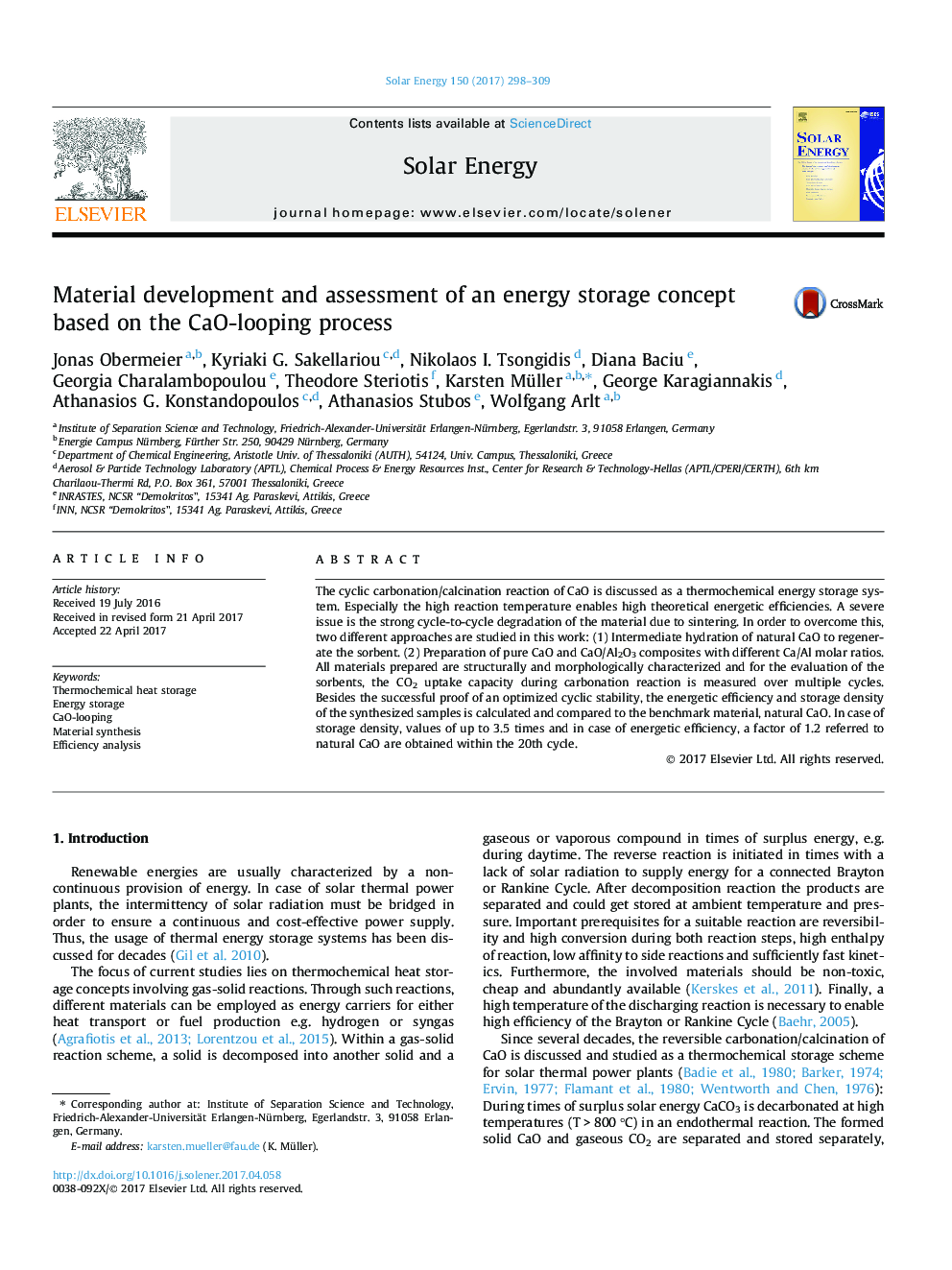| Article ID | Journal | Published Year | Pages | File Type |
|---|---|---|---|---|
| 5450799 | Solar Energy | 2017 | 12 Pages |
Abstract
The cyclic carbonation/calcination reaction of CaO is discussed as a thermochemical energy storage system. Especially the high reaction temperature enables high theoretical energetic efficiencies. A severe issue is the strong cycle-to-cycle degradation of the material due to sintering. In order to overcome this, two different approaches are studied in this work: (1) Intermediate hydration of natural CaO to regenerate the sorbent. (2) Preparation of pure CaO and CaO/Al2O3 composites with different Ca/Al molar ratios. All materials prepared are structurally and morphologically characterized and for the evaluation of the sorbents, the CO2 uptake capacity during carbonation reaction is measured over multiple cycles. Besides the successful proof of an optimized cyclic stability, the energetic efficiency and storage density of the synthesized samples is calculated and compared to the benchmark material, natural CaO. In case of storage density, values of up to 3.5 times and in case of energetic efficiency, a factor of 1.2 referred to natural CaO are obtained within the 20th cycle.
Related Topics
Physical Sciences and Engineering
Energy
Renewable Energy, Sustainability and the Environment
Authors
Jonas Obermeier, Kyriaki G. Sakellariou, Nikolaos I. Tsongidis, Diana Baciu, Georgia Charalambopoulou, Theodore Steriotis, Karsten Müller, George Karagiannakis, Athanasios G. Konstandopoulos, Athanasios Stubos, Wolfgang Arlt,
